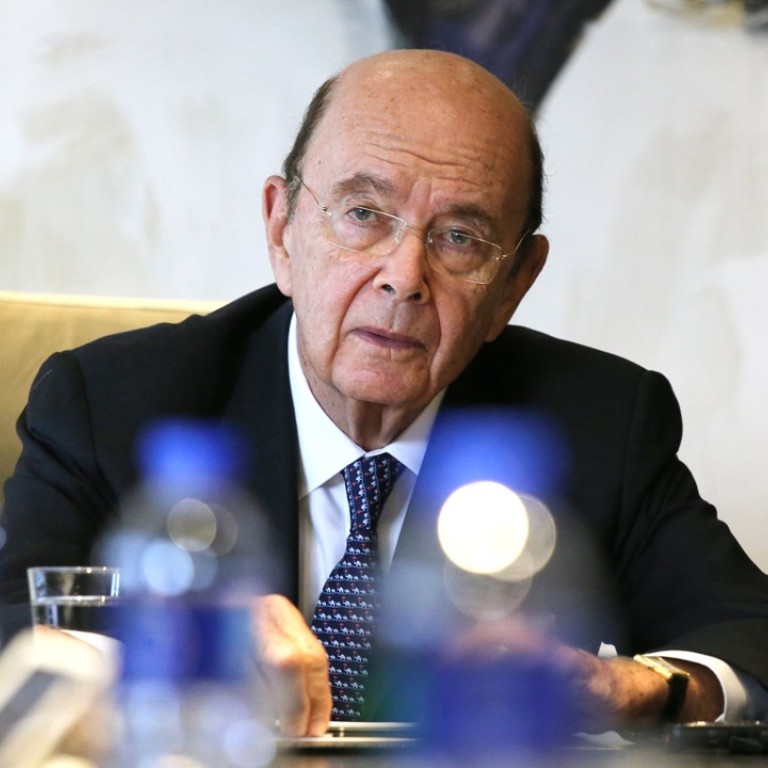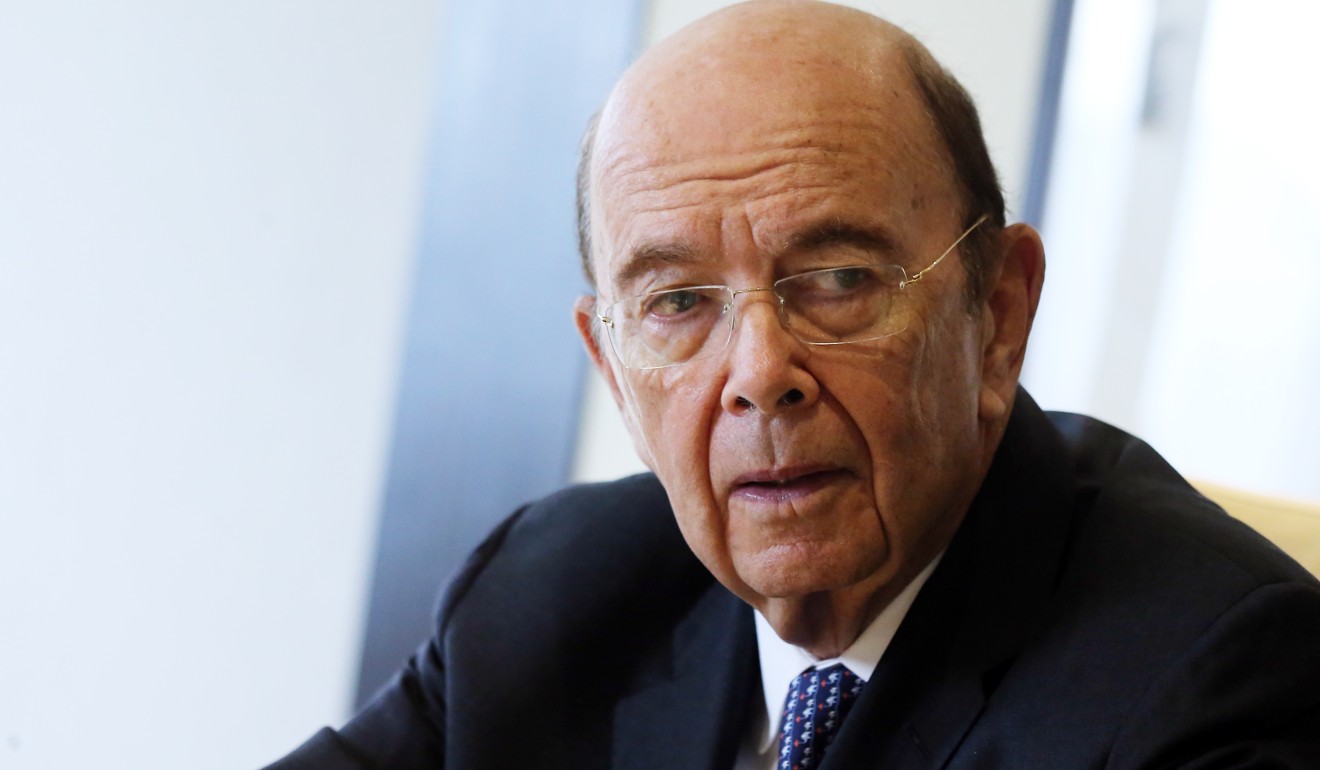
US Commerce Secretary Ross highlights three main barriers to better trade links with China
Trump aide calls for action on market access, protectionism and intellectual property protection before US President’s visit to Beijing
China and America will have to address three major stumbling blocks before US President Donald Trump’s visit in November, US Commerce Secretary Wilbur Ross has said.
In an interview with a small group of reporters in Hong Kong, Ross highlighted the question of better market access, protectionist behaviour and intellectual property rights as the key issues.
Ross said the US trade relationship with China was lopsided and neither side had made concessions during his visit to Beijing this week, but he insisted he was optimistic about resolving trade disputes between the two nations.
Ross met Chinese Premier Li Keqiang, Vice Premier Wang Yang and Liu He, a key financial and economic adviser to President Xi Jinping, during his visit.
Officials from both sides have stepped up communication ahead of Trump’s visit.
US Secretary of State Rex Tillerson will also visit Beijing between Thursday and Saturday to meet senior Chinese leaders.
During the talks, Ross pressed China on the “need to rebalance bilateral trade and investment relations” and urged it to take “meaningful action” on trade issues.
The two nations came up with a 100-day action plan to tackle their trade disputes following the first meeting between Xi and Trump in April.
But Ross said many sectors had not been addressed in the plan, and both sides “are looking at bigger things and more difficult things than what we had in the first 100 days”.

“The most important thing is better market access, both for companies operating there physically and for companies exporting there. And ranking about equal with that would be less protectionist behaviour,” he said during the group interview.
“The US is actually the least protectionist of any major country, and China is one of the most protectionist.
“You might have seen another area, of course, is the respect for intellectual property rights. So those are the three most important problems there.”
The US has complained about its trade deficit with China, which stood at US$347 billion last year, and about China’s restrictions on access for foreign companies in sectors such as energy, telecommunications and cars.
Ross also hit back at Chinese government subsidies to companies. For example, he said 360 out of about 400 robotic companies in China had received such subsidies, adding that this had led to overcapacity problems.
But he struck an optimistic note on the future trade relations with China.
“There was frankness and openness on both sides. They don’t agree with us on some of the issues. But at least both sides articulate their points of view. And I think that’s a good start,” he said.
He said the good personal relations between Xi and Trump could help resolve differences.
“What makes me really optimistic is the good personal relationship that has developed between the two presidents.
“Because once you have the beginnings of feelings of mutual respect and mutual trust, then at least you have a framework within that’s possible to discuss sensitive issues and try to come to a fair resolution,” said Ross.
The visit of Ross and Tillerson comes at a time of high tension between the United States and North Korea, which is working to develop nuclear-armed missiles capable of reaching the US mainland.
The US has imposed sanctions on banks and businesses with ties with North Korea, but Ross said the sanctions were not targeted at China.
Su Hao, a professor from China Foreign Affairs University in Beijing, said the issue would be Tillerson’s top priority.
“As the situation has changed so much from when the two presidents last met in April and the risk of war has risen significantly, China and the US have to have a consensus on the solution – whether it involves force or peaceful means. And also, if there is an emergency, how to deal with it,” he said.
“Beijing wants very much to guarantee and stabilise China-US relations for the rest of the Trump term.”
Su said Tillerson would also learn about the upcoming Communist Party congress to be held next month, which will see a reshuffle of the party leadership.
Wu Xinbo, a US affairs expert at Fudan University, also said Tillerson would focus on North Korea.
“At this stage it’s hard to reach an final agreement on the solution between US and China but communication and coordination in policies is absolutely necessary,” he said.
“The Trump administration is also very desperate to take home some presentable result from this visit [because of his domestic problems] so it’s all down to the negotiation and compromises each side makes.”
Additional reporting by Liu Zhen

